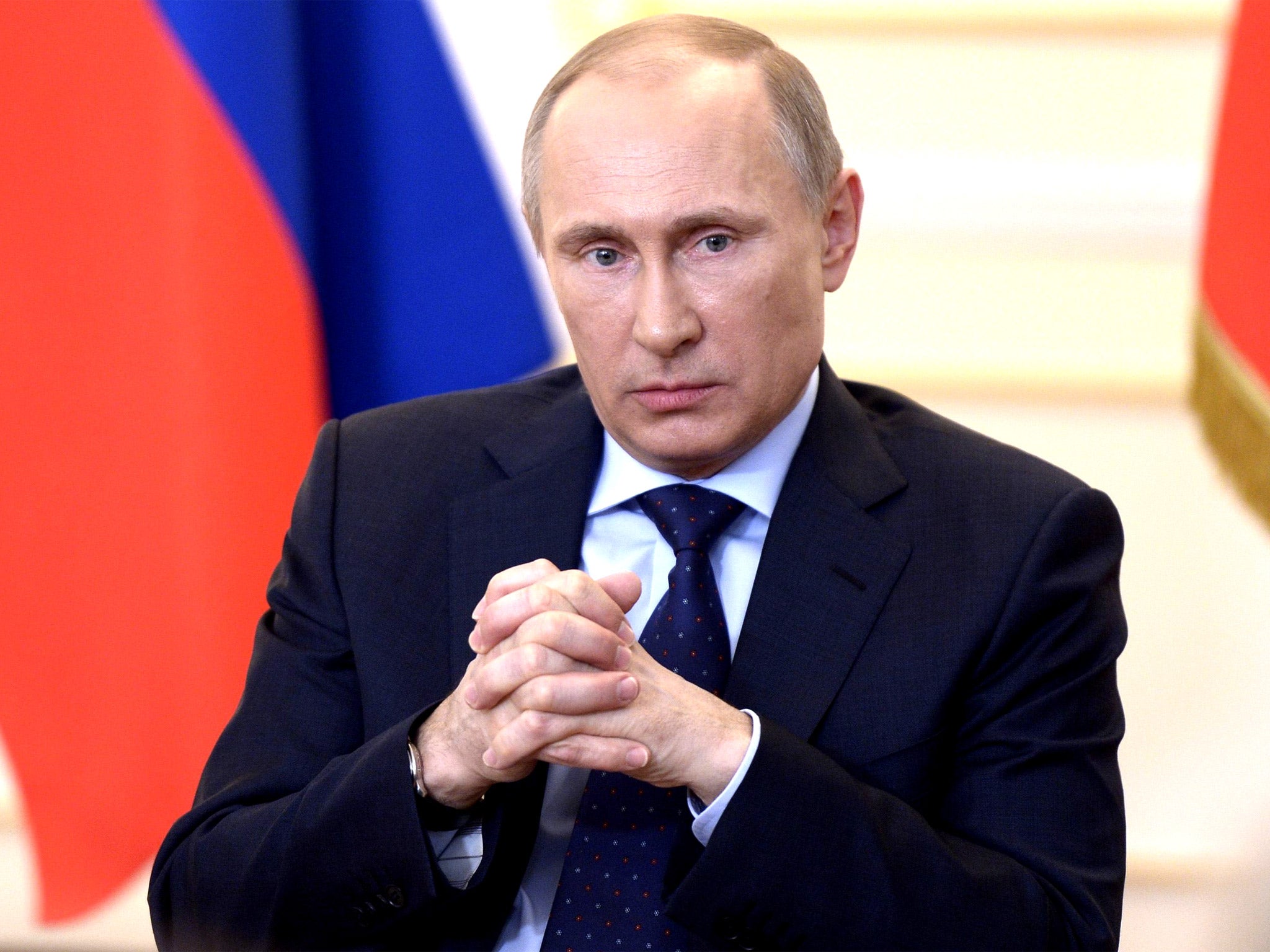Ukraine crisis: President Putin won’t rule out force – but will not annex Crimea to Russia

Should the world be more worried after President Putin’s press conference today, when he condemned the overthrow of Viktor Yanukovych in Ukraine as illegal, denied there were extra Russian troops in Crimea, and stood by force as a last resort?
Or can the world perhaps rest a little easier? The relatively relaxed Vladimir Putin suggested an effort by the Russian leader to defuse some of the tension.
When William Hague and others stated on Monday, as a fact, that the Crimean peninsula was now under complete Russian control, it appeared that Mr Putin had given his many enemies in the West yet another excuse for misreading his intentions. Tensions rose to fever pitch – and the rouble and Russian shares dived.
There were reports that Russia had given the Ukrainian military a deadline for surrendering to Moscow. Russian troops were said to be massing on Ukraine’s eastern border, while the first shots were fired (into the air) outside Belbek airbase – by Russian troops warning off an approaching group of 300 or so Ukrainian soldiers.
But, by the time Mr Putin held his press conference, the rumoured deadline for a surrender had passed without incident; Russian commanders had declared their military exercise in south-west Russia complete, and the troops had been withdrawn to their barracks. Mr Putin did not look like a man who was about to order, or precipitate, World War Three.
He had strong words for President Yanukovych’s ousting. He painted a picture of far-right bands of Ukrainians roaming the streets, potentially presenting a threat to Russian-speakers. He did not exclude eventual use of military force.
In between, however, Mr Putin sent some very different signals. Most notably, he said that Russia had no intention of “annexing” Crimea. This may come as a disappointment to more militant Russian-speakers in Crimea. It may also disappoint many of Mr Putin’s fellow countrymen, who regard Crimea as a Russian jewel.
But what that pledge says is that Mr Putin is not – at least not now – prepared to breach the terms of the Budapest declaration of 1994, when Russia, Britain and the US stood as guarantors of post-Soviet Ukraine’s independence and territorial integrity. Crimea is to hold a referendum on its status next month. Greater autonomy and independence may both be on the ballot paper. But not reunification with Russia. And if Mr Putin has ruled out the prospect of Crimea rejoining Russia, then it is more likely that he has also ruled out any change of status for the rest of Ukraine.
Mr Putin also made clear that he was not going out of his way to have Ukraine’s ousted President reinstated. Even as Mr Putin stressed the illegality of Mr Yanukovych’s removal, he qualified this as “in law”. As a lawyer, Mr Putin is on safe ground – Ukraine’s President had been elected in a contest judged by international observers to be reasonably fair. But he was equally clear that he regarded his erstwhile ally as finished.
Mr Putin also hinted that, for all his misgivings about the interim Ukrainian government, and his preference to return to the agreement underwritten by the three EU foreign ministers, and witnessed by Russia’s envoy, he could perhaps do business with the current administration – if it respected the rights of the country’s Russian-speakers.
This did not prevent Mr Putin from uttering strong words about the state of Ukraine’s economy, and the debts it had run up for Russian gas. Moves appeared to be afoot for the EU or US to clear Ukraine’s energy debt, though how feasible this would be was not clear.
Overall, there was nothing, either in what Mr Putin said or in his demeanour, to suggest a man hell-bent on restoring the Soviet empire by force. His tone and manner were quite different from the bleak and uncompromising statements that he and the then President, Dmitry Medvedev, had made in 2008, as Russia sent troops into Georgia.
At the same time, there must be caveats about how much safer the world is today than yesterday. Mr Putin described the use of force as a last resort, but he did not exclude it, if Russia judged that Ukraine’s Russian population was in danger – a term that can be elastic. And the situation on the ground remains extremely tense.
There is genuine fear among Russian-speakers of what the interim government portends. And the situation outside the Belbek airbase came perilously close to armed confrontation. One mistake, one shot fired in anger and not only could the conflagration be immediate, but there would be little, far away in Moscow, that Vladimir Putin could do to stop it.
Join our commenting forum
Join thought-provoking conversations, follow other Independent readers and see their replies
Comments